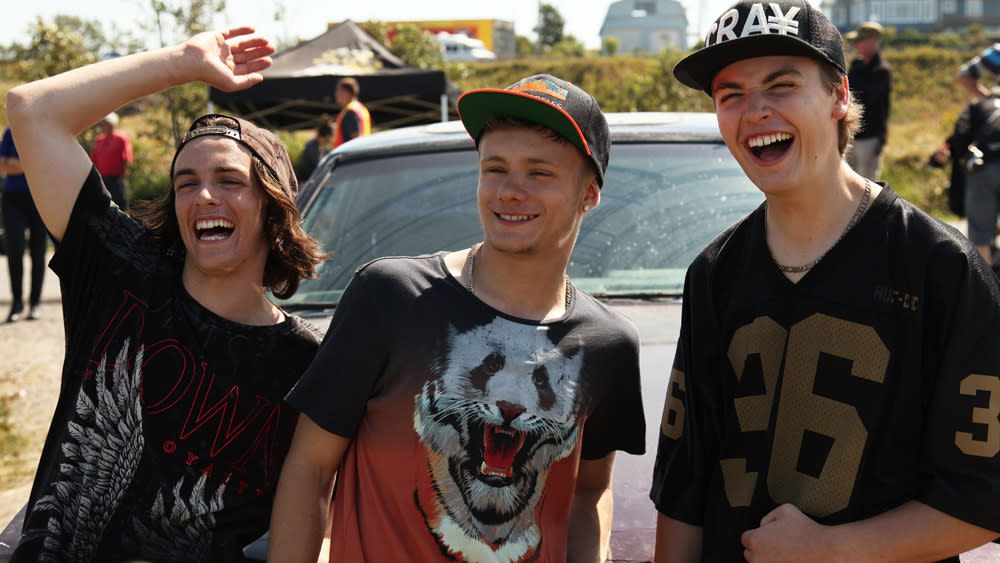‘Sound of Trees’ Director Francois Peloquin on Quebec Culture in Transition

Director Francois Peloquin provides an intimate view of Quebec’s rural culture in his first feature, “The Sound of Trees,” which has its world premiere in competition today at the Karlovy Vary Film Festival. Variety spoke to Peloquin about his film ahead of the premiere.
In the coming-of-age tale, 17-year-old Jeremie (Antoine L’Ecuyer) seeks out a future that does not include the sawmill in his native town of Gaspesie. Instead, Jeremie prefers to spend his time on hip-hop culture, which puts a strain on his relationship with his father (Roy Dupuis). The film addresses cultural heritage as it shows the growing generational separation between parents and their children in long emotional scenes co-written by Peloquin and Sarah Levesque.
How much of the film is a reflection of your life as a Canadian?
The film is based on a reflection I had on Quebec culture. The film represents the culture of teenagers; it’s a moment when you’re not sure or so fond of where you are from, and that you don’t recognize where you are from, and who you are, and you don’t necessarily value where you are from. I wanted to talk about life as a teenager in the region because I think Quebec doesn’t recognize this region because everything is about the metropolis.
So you documented life in the “Bas-du-fleuve” region near the Saint Lawrence River because you saw that it was missing in cinema?
The film portrays life as a teenager in that region and I think that this is true. It’s not really in that medium. Not in film, television or documentaries. You don’t see it so much. The youth in that region, they usually don’t know what to do with this time in their life. Naturally they are impressed and interested in American culture because it’s big, bold and flashy.
Why did you pick that region in particular?
We came to this region — it’s called “the end of the world” because you have those trees and tractors and farms and then there is a long slope that goes down to the river — but you don’t see the other side of the river since it’s so wide. It’s like you’re at the tip of the land and at the end of anything. You feel really, really remote. For me it was very important for this film to have a teenage kid reflect on the fact that he doesn’t know what to do. He doesn’t’ know if he wants to end up there or not.
Family and legacy is so important in your film. How did you go about conveying that onscreen?
The family was a very important piece of the film because I had to find a naturalistic setting that is at a family house on a farm. There are very few families now that are like that. We searched for a family of farmers and we found an extraordinary family that hosted us and that helped us… it was pure luck. The mother played a little part in the film and she helped us contact the mayor who has a little part in the film. We needed help from the local people, otherwise the film would not have been done.
So in the film, Jeremie enjoys a lot of hip-hop culture. Is that part of the generation gap that you noticed in Québec?
To a certain extent. There is hip-hop culture, but what is now certain is that there is a sense of nowhere… [teenagers] hanging out, don’t know what to do, spending time doing silly things. This is more real [throughout the film] than actual hip-hop.
How do you think the people in that region will receive your take on their cultural heritage?
Well, they will see the film in a couple of weeks, and I don’t know how they will receive it, but I think that they will be proud and happy just because they’ll recognize themselves in the film. It’s very realistic and they will see a situation that they see every day.
Related stories
Cannes: Alpha Violet Takes Peloquin's 'Trees'
Get more from Variety and Variety411: Follow us on Twitter, Facebook, Newsletter
